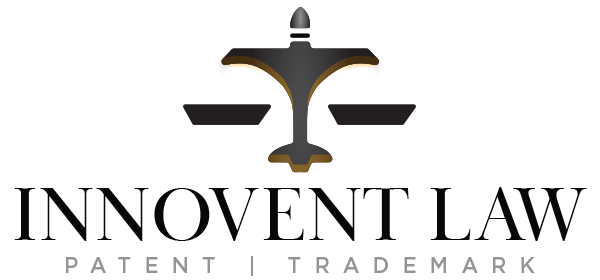Can I patent my software invention? We explain what you need to know before doing your patent application.
In today’s digital age, software inventions are at the forefront of technological innovation. But when it comes to protecting these inventions, many developers and businesses find themselves asking, “Can you even patent software?” The answer is yes, but there are key considerations to ensure your application is successful. This blog post dives into the essential elements you want to know when submitting a software patent application.
Can You Patent a Software?
Yes, you can patent software as well as software integrated into a mechanical device, but the path isn’t straightforward. The United States Patent and Trademark Office (USPTO) scrutinizes software applications to ensure they meet specific criteria beyond the basic requirements of novelty and non-obviousness. This involves demonstrating that your software offers a practical application beyond an abstract idea, a common hurdle in software patents.
What Makes a Software Patentable?
A software invention becomes patentable when it provides a novel technical solution to a problem. To navigate this, you should work closely with a patent attorney who can articulate how your software operates uniquely within its technological field. It’s not enough for your software to perform a routine or conventional activity; it must introduce a novel and non-obvious method or improvement
What is an Abstract Idea?
In the context of software patents, an abstract idea refers to a concept that isn’t tied to a particular concrete or tangible form. Many patent rejections stem from the invention deemed too abstract. For detailed examples and explanations, explore the Patent Docs discussion on this topic.

Should You Patent a Software?
Patenting software can be valuable, protecting your unique innovations from competitors. However, deciding whether a patent is worth pursuing depends on whether the software can maintain relevance over the patent’s life (20 years from the date of filing), given the rapid pace of technological change. Consider the potential return on investment and the specifics of patent law here.
Software Patents Examples: How Innovations in Tech Are Protected
When discussing the protection of software inventions through patents, examining real-world examples can provide valuable insights into how diverse applications of software are effectively patented. These examples not only illustrate the range of technologies that can be protected but also help clarify the criteria that make software patentable.
1. Data Compression Algorithms
One notable example involves data compression algorithms, which are essential for reducing the size of data files without losing quality. These algorithms are widely used in various industries, including streaming services and software development, making them a lucrative area for patents.
2. E-commerce Solutions
E-commerce platforms often utilize patented software to enhance user experiences and increase efficiency. For example, Amazon holds numerous patents on its 1-Click ordering process, which simplifies the checkout process for users, significantly boosting sales and customer satisfaction. This type of software invention is a prime candidate for patents due to its direct impact on commerce and user interaction.
3. Financial Technology Software
Fintech companies frequently secure patents for software that innovates financial transactions and services. For instance, software that enables blockchain technology or provides new methods for secure online transactions can be patented. These patents protect the intellectual property that sets these companies apart from competitors, emphasizing the importance of patents in maintaining a competitive edge. (examples of companies include State Farm, Mastercard, Capital One, Alipay, Wells Fargo)
4. Artificial Intelligence in Healthcare
AI-driven software solutions in healthcare, such as diagnostic tools or patient management systems, are increasingly being patented. These tools often involve complex algorithms capable of processing vast amounts of data to make predictions or recommendations that assist healthcare providers.
5. Mobile Applications
Mobile apps that introduce unique functionalities or algorithms can also be patented. Whether it’s a novel gaming concept or a unique mobile banking feature, patents ensure that the creativity and resources invested into developing these applications are safeguarded.
These examples underscore the broad applicability and crucial role of patents in protecting technological advancements across various sectors. By understanding these examples, developers and businesses can better navigate the landscape of intellectual property and consider how best to protect their innovative software solutions.
Is It Possible to Patent an Algorithm?
Yes, algorithms are patentable if they meet certain criteria set by the United States Patent Office (USPTO). An algorithm must have technical application, novelty, industrial utility, non-obviousness, and be more than an abstract idea. This means the algorithm must effect a transformation or reduction of a particular article to a different state or thing.
Software Patents vs. Copyright
While patents protect the functional part of software, copyright protects the expression of ideas such as source code and graphic design. Both forms of intellectual property protection can be important, and understanding when each applies is crucial for maximizing protection.
3 Elements You Must Be Aware of Before Submitting a Software Patent Application
- Detailed Documentation: Provide thorough documentation of your software, including how it operates and its development process. This is crucial for explaining your invention’s uniqueness to a patent examiner.
- Avoiding Abstract Ideas: Ensure your application clearly defines how your software solves a specific problem in a novel way, avoiding rejection for being too abstract.
- Legal Expertise: Engage with a knowledgeable patent attorney who specializes in software patents. Their expertise will be invaluable in navigating the complexities of your application process. Explore how Innovent Law can assist here.
Securing a patent is a strategic step that can provide significant competitive advantages. By understanding these key elements and working with experienced legal professionals, you can enhance your chances of obtaining a patent and protecting your innovative software program. Stay ahead of the curve by ensuring your software inventions are fully protected under patent law.


